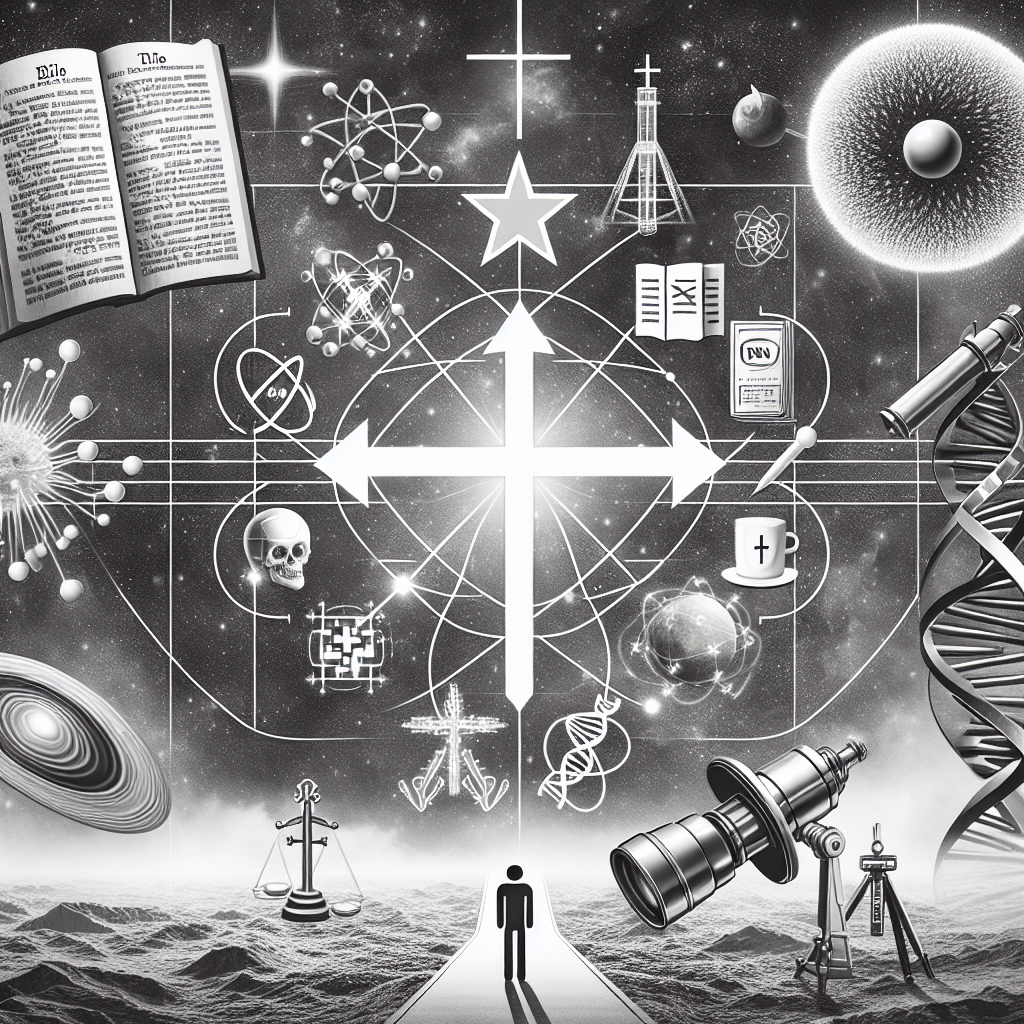Divine Design: Navigating Free Will through the Lens of the Bible and Modern Science
In today’s complex world, the interplay between divine design and human agency is a pivotal topic that invites both faith and inquiry. Many individuals grapple with profound questions regarding free will: How does it coexist with a higher power? Are our choices truly our own, or are they influenced by something beyond us? By exploring the insights found in biblical scripture alongside contemporary scientific perspectives, we can gain a rich understanding of this intricate relationship.
A Biblical Perspective on Free Will
The Bible is a foundational text for millions around the globe, offering wisdom and guidance on moral choices and human behavior. Scripture presents a narrative that emphasizes free will as a gift from God. In Genesis 1:26-27, humanity is described as being made in the image of God, endowed with the capacity to make choices. This notion is further evidential in Genesis 2:16-17, where God specifically grants Adam and Eve the freedom to eat from any tree in the garden except for one. This act of granting free will not only showcases God’s desire for a genuine relationship with humanity but also highlights the immense responsibility that comes with freedom.
The biblical concept of free will is inherently tied to love and moral responsibility. As expressed in Deuteronomy 30:19, individuals are called to choose between life and death, blessing and curse. This choice underscores the importance of making choices that reflect our values and beliefs. The narrative of salvation through Christ emphasizes that while humans may falter, there is forgiveness and redemption. This message instills hope, showing that our choices, even the misguided ones, can lead to growth and transformation.
Insights from Modern Science
While the Bible provides a spiritual and moral framework, modern science offers empirical insights into the nature of human decision-making. Cognitive psychology and neuroscience have explored how our brains process information and make decisions. Researchers have identified numerous factors that influence decision-making, including biological predispositions, environmental influences, and even subconscious mechanisms.
One fascinating area of study is the concept of neuroplasticity, which illustrates that our brains are capable of change throughout our lives. This means that while we may have certain innate tendencies, our choices can reshape our neural pathways, allowing us to develop new habits and perspectives. This aligns with the biblical notion of transformation—Romans 12:2 calls on believers to “be transformed by the renewing of your mind.” The convergence of faith and science here is encouraging; it reinforces the belief that while we are shaped by our environments, we are not bound by them. We have the power to choose differently and seek growth.
Harmonizing Faith and Reason
The dialogue between biblical teachings and modern scientific understandings is not always straightforward. Some people perceive a dichotomy between faith and science, fearing that one undermines the other. However, this perspective can be limiting. Many theologians and scientists find common ground, recognizing that both realms seek to unravel the mysteries of human existence.
For example, the idea that individuals are created with purpose—a common biblical theme—can very much complement the scientific exploration of what it means to be human. Rather than viewing the divine design and scientific inquiry as opposing forces, they can be seen as complementary pathways toward understanding our reality. Both invite us to embrace our agency, take responsibility for our choices, and seek a deeper connection to ourselves, others, and the divine.
Encouragement for the Journey
Navigating free will through the lens of the Bible and modern science encourages a holistic understanding of our lives and choices. It empowers us to embrace our ability to choose, to reflect on our values, and to act in accordance with our beliefs. Whether we are faced with everyday decisions or momentous life choices, we can remember that we are endowed with the autonomy to shape our destinies.
Encouragement can be found in the understanding that the journey of making choices is inherent to the human experience. Mistakes and setbacks are part of growth; they can lead to profound transformations if we allow ourselves to learn from them. The biblical message of grace and forgiveness serves as a balm in our frailty, reminding us that we are accepted despite our imperfections.
Conclusion
In conclusion, the interplay of divine design and free will is a profound aspect of human existence. By looking through the lenses of both the Bible and modern science, we can cultivate a deeper understanding of our agency and responsibilities. We are free to choose, yet we are also guided and supported by a loving Creator. This journey invites us to pursue growth, foster compassion, and engage with the world positively and purposefully. Let us embrace our freedom, knowing that every choice—big or small—contributes to the grand tapestry of our lives.
Explore and dig up answers yourself with our BGodInspired Bible Tools! Be careful – each interaction is like a new treasure hunt… you can get lost for hours 🙂


